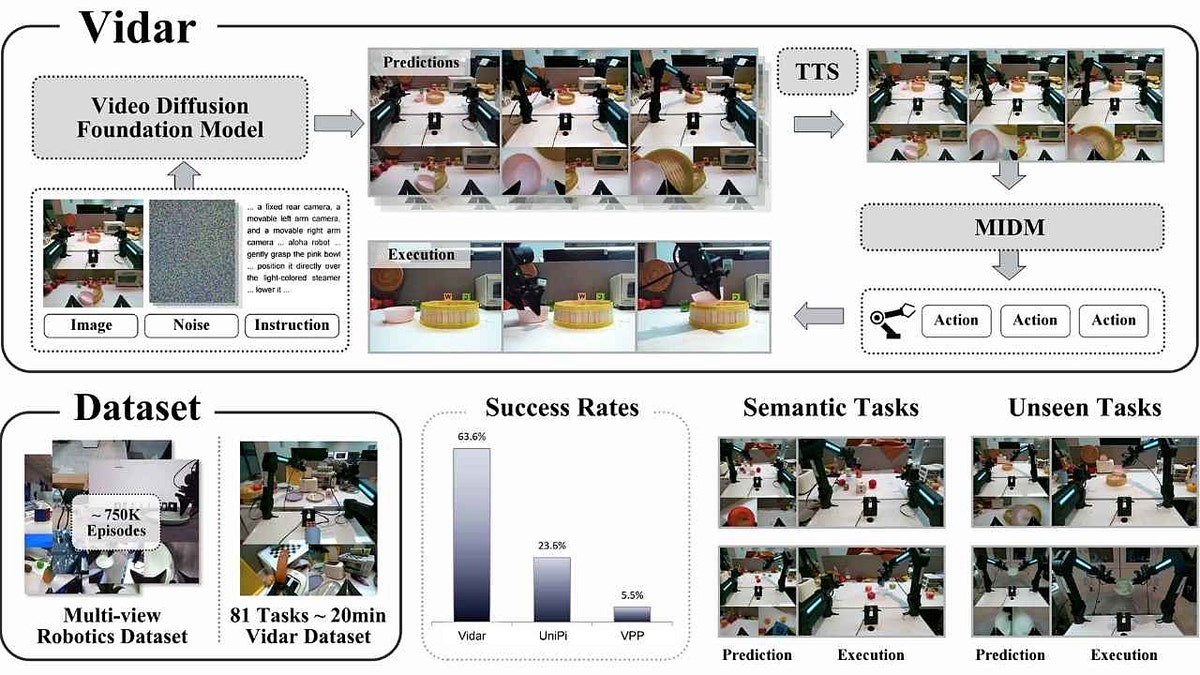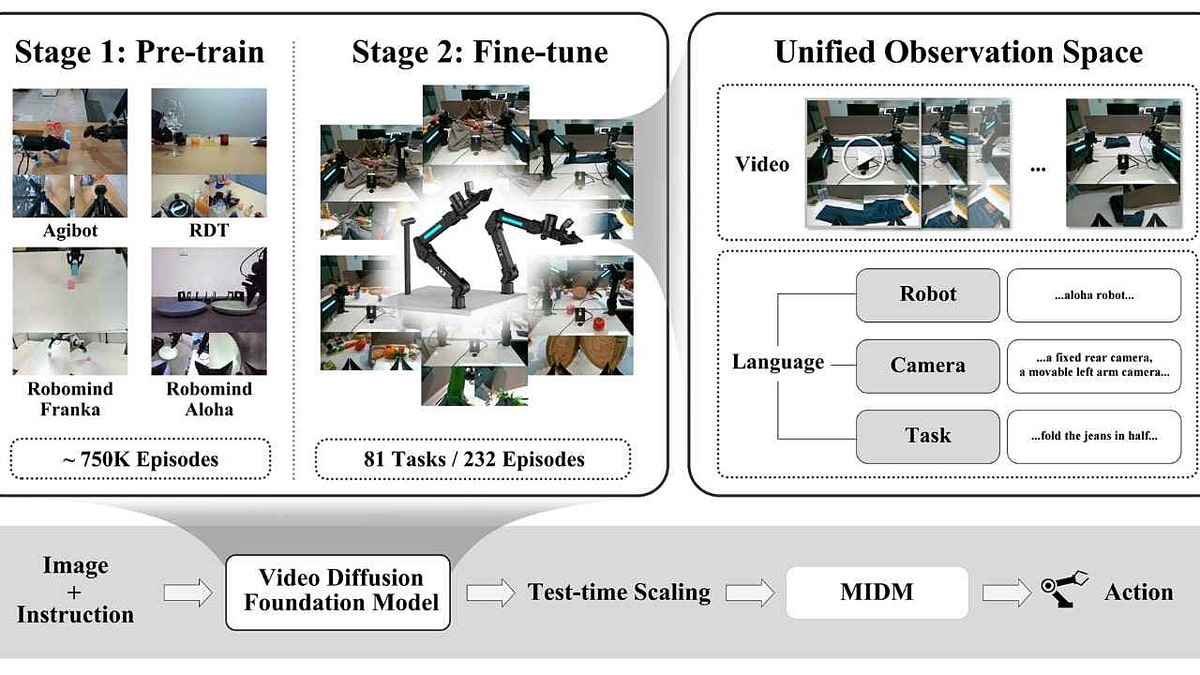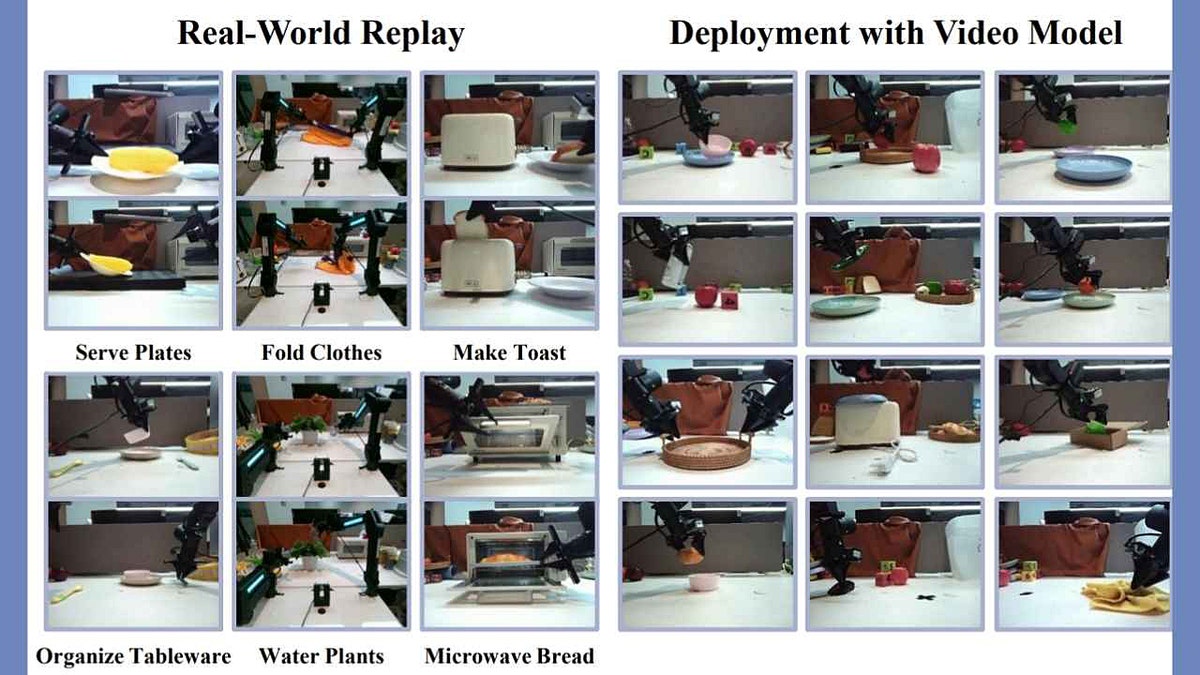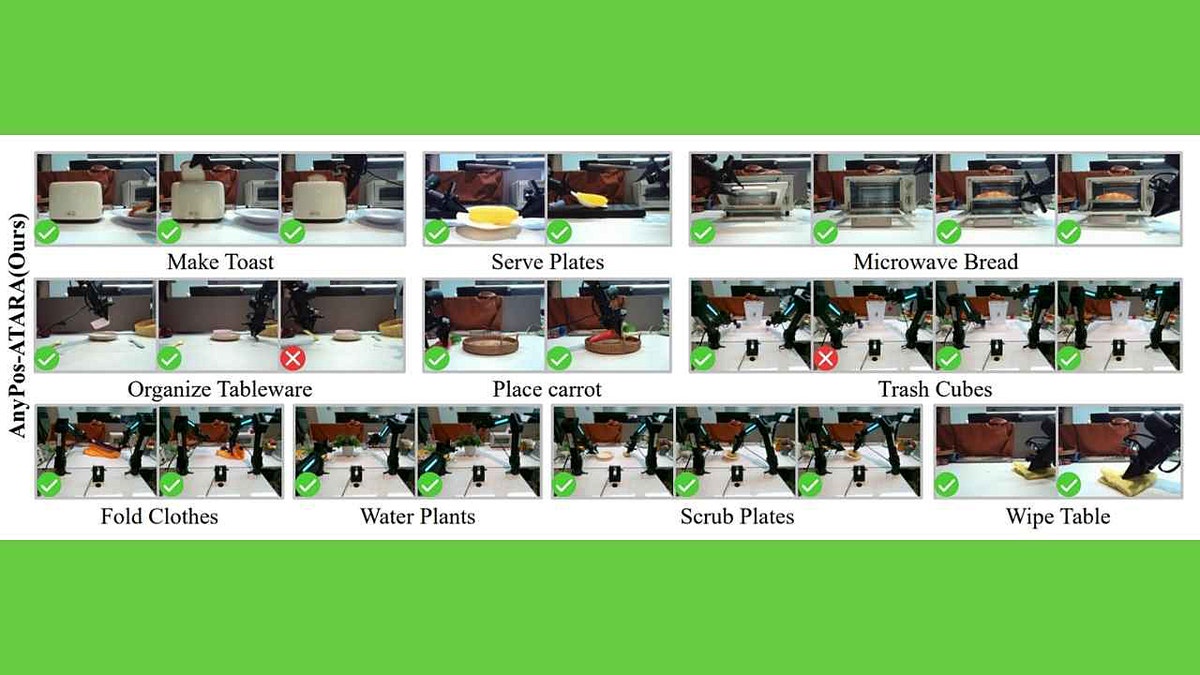

One of the biggest hurdles in developing humanoid robots is the sheer amount of training data required. Teaching machines to act like humans demands massive video datasets. Collecting that data is expensive, time-consuming and difficult to scale. This challenge has slowed progress toward making robots useful in everyday environments such as homes, hospitals and offices.
Sign up for my FREE CyberGuy Report
Get my best tech tips, urgent security alerts, and exclusive deals delivered straight to your inbox. Plus, you’ll get instant access to my Ultimate Scam Survival Guide - free when you join my CYBERGUY.COM newsletter.
CHINA LAUNCHES CENTER TO TRAIN 100-PLUS HUMANOID ROBOTS SIMULTANEOUSLY

Vidar says its training methods use video to program robots in 20 minutes. (Vidar)
ShengShu Technology has introduced Vidar, short for Video Diffusion for Action Reasoning. Instead of relying solely on endless hours of physical-world data, Vidar generates synthetic training environments from just a small amount of real video. By blending real data with AI-generated video, Vidar makes training more efficient, scalable and affordable.

Vidar uses video to train robots to perform real-world tasks. (Vidar)
Vidar works by decoupling perception from control. First, it uses ShengShu's Vidu video model to learn from both real and synthetic videos. Then, a task-agnostic system called AnyPos translates that knowledge into motor commands for robots. This modular setup allows for faster training and easier deployment across different types of robots.
Unlike traditional methods that require robots to physically interact with the world to learn, Vidar can simulate complex, lifelike scenarios virtually. Remarkably, it only needs about 20 minutes of training data, between 1/80 and 1/1200 of what leading models require. That efficiency makes it possible to scale robot training to levels never seen before.
CHINESE TECH FIRM SHARES ROBOT TRAINING SECRETS WITH THE WORLD

Vidar's real-world replay and deployment with video model (Vidar)
Vidar is more than just a research tool. Its design means robots can adapt quickly to new tasks and environments. That could unlock real-world applications in eldercare, home assistance, healthcare, and smart manufacturing. By bridging the gap between simulation and reality, Vidar is positioning humanoid robots as practical helpers rather than futuristic concepts.
HUMANOID ROBOT PERFORMS MEDICAL PROCEDURES VIA REMOTE CONTROL

Results of AnyPos-ATARA with video replay to accomplish various manipulation tasks (Vidar)
For consumers, Vidar brings the idea of household or workplace robot helpers closer to reality. Instead of waiting decades for robots to mature, scalable training could speed up deployment in everyday settings. This could mean robots assisting you with chores, supporting eldercare, or even helping in medical environments sooner than expected.
Take my quiz: How safe is your online security?
Think your devices and data are truly protected? Take this quick quiz to see where your digital habits stand. From passwords to Wi-Fi settings, you’ll get a personalized breakdown of what you’re doing right - and what needs improvement. Take my Quiz here: Cyberguy.com.
Vidar is a milestone in the race toward practical humanoid robots. By blending limited real data with generative video, ShengShu has created a smarter and faster way to train physical AI. The approach tackles cost, efficiency, and scalability all at once, three factors that have long held robotics back.
Would you welcome a humanoid robot in your home if it could help with daily tasks, or does the idea still feel too futuristic? Let us know by writing to us at Cyberguy.com.
Sign up for my FREE CyberGuy Report
Get my best tech tips, urgent security alerts, and exclusive deals delivered straight to your inbox. Plus, you’ll get instant access to my Ultimate Scam Survival Guide - free when you join my CYBERGUY.COM newsletter.
Copyright 2025 CyberGuy.com. All rights reserved.
